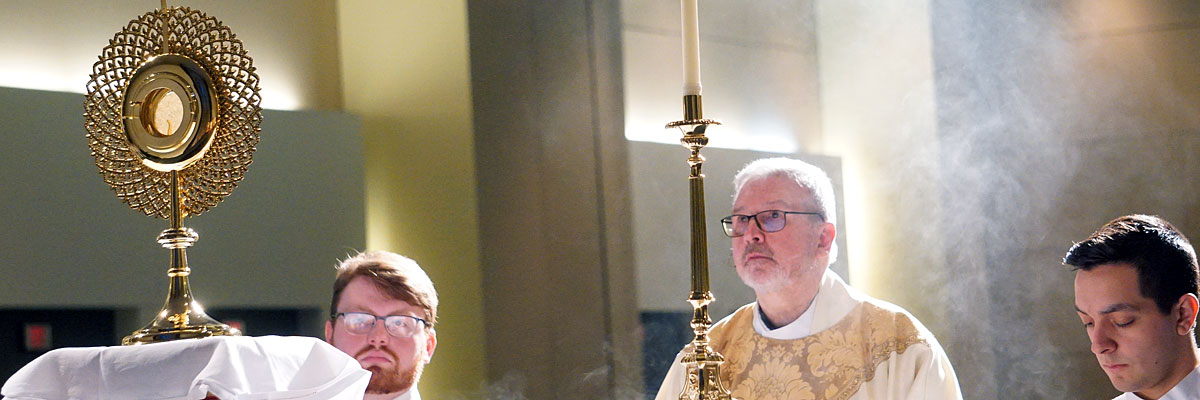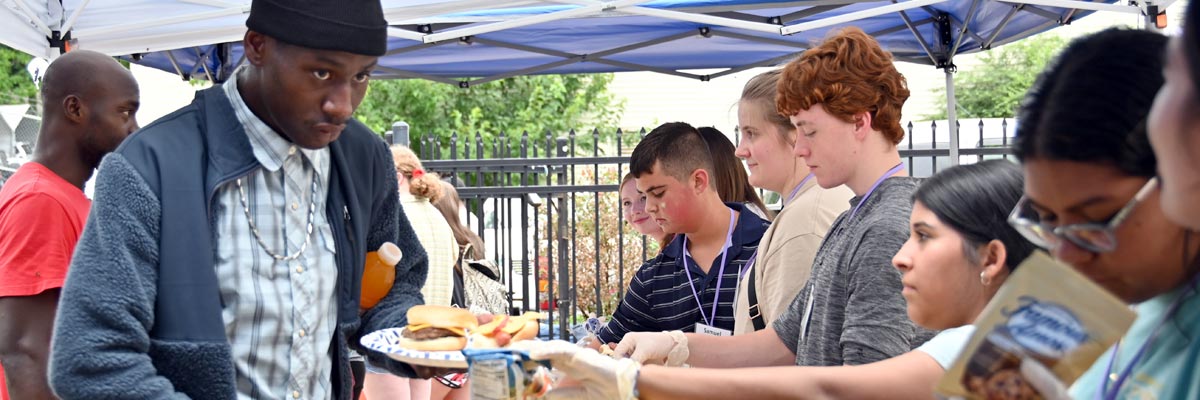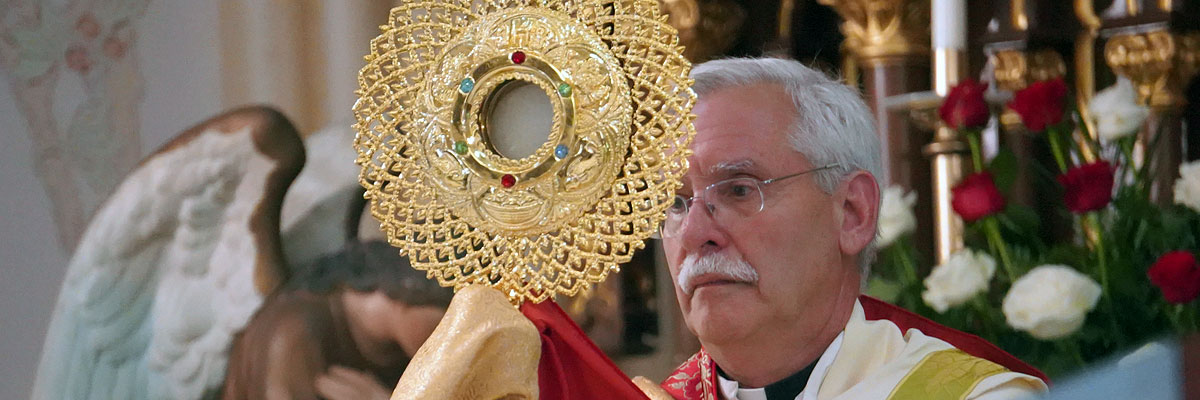Official Website of the
Catholic Diocese of Little Rock
Seven things I learned about Mass since first Communion
Published: March 12, 2005
By Judy Hoelzeman
St. Edward Church, Little Rock
I made my first holy Communion when I was 7. I remember my mother’s warning not to fall off my bike — “You don’t want to skin your knees before your first Communion.”
A new dress and shoes, cards from aunts and uncles, all made me know it was a very important event. I still know that, and I’ve learned a lot more in the many years since I was 7. Here are seven of those lessons:
- Mass is not all about receiving. I go to Mass to give of myself and to express profound gratitude to God for the continual presence of his son, Jesus. I’m not a passive observer. I am a part of the body of Christ. How can I let someone else express my consent and belonging when this is the center of my life?
- Jesus is present in more ways than one. Ever since childhood, I have recited a little prayer of belief in Jesus’ real presence at the consecration. But now I know that Jesus is present in the Eucharist and in other ways. Jesus is present in the Scriptures read and in every person present in the congregation.
- The Mass helps me become familiar with the Scriptures. When I was 7, the Scriptures were read in Latin. Now, I hear the story of the Church: writings of the prophets, the memories of the apostles and the accounts of Jesus’ life — in English. In a carefully organized three-year cycle, I hear a large portion of the Bible.
- The bread and wine are transformed, and so am I. At Mass I participate in the life, death and resurrection of Jesus, because those events are actually made present. When I receive Christ’s body and blood, I am saying, “Yes, I am willing to die with Christ.” Being willing to “die” means transformation. The Eucharist gives me the strength to change ambitions, attitudes, priorities or habits that don’t fit in with the way Jesus lived his life.
- The Mass is supposed to be connected to real life. The bread and wine transformed into Jesus are not there to be looked at and admired. After Mass, I am to go out and live what the ritual has re-enacted. That’s why Jesus gave himself, after all, so that I could have the strength to do what he did: build the kingdom. The more I give myself over to God’s transformation, the more I should be bothered by injustice in the world. I should become more aware of the hungry, the poor, violence, wealth concentrated in a few places. Why? Because those were Jesus’ concerns. Pope John Paul II said it best: “The Sunday Eucharist should be a great school of charity, justice and peace.”
- I have to “tune back in.” Because even the most profound experience can become routine, my mind sometimes wanders. I need reminders to tune back in regularly during the service. One example is to really think about each petition in the prayer of the faithful and try to picture the people and circumstances we are praying for. These “wake-ups” help me. You can choose some that work for you.
- The Mass unites us with our deceased loved ones. Now that my parents are both gone, this means even more to me. The Eucharist unites the whole Church, those living, those already in heaven and the faithful departed who are still waiting to be purified before entering heaven. It is a comforting way to connect with those people I miss so much.









